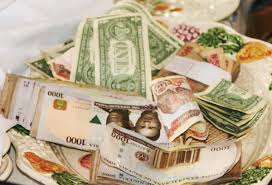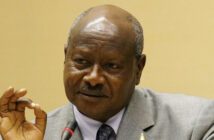Nigeria’s naira closed at a new low of 173.20 against the dollar on Monday, down 1.21 percent from the previous session even though the central bank intervened to prop up the currency, dealers said.
The central bank asked lenders to bid for $2 million each to help shore up the naira, but commercial banks avoided the auction as the regulator was restricting re-sale margins to curb speculation, dealers said.
A plunge in prices for oil, Nigeria’s main export, has hit the naira in the past two months. The currency has lost 8 percent this year while the central bank has spend billions of dollars to prop it up.
Nigeria’s foreign reserves fell 3 percent in the two weeks to Nov. 13, to $37.59 billion, as the central bank stepped up support for the naira. Reserves dropped to a four-month low of $37.9 billion as of Nov. 7.
But despite interventions, the currency of Africa’s biggest economy is still worth 2.9 percent less against the dollar than a week ago and remains outside the central bank’s preferred trading band.
Late on Sunday, Finance Minister Ngozi Okonjo-Iweala proposed that the benchmark oil price assumed in the 2015 budget be lowered and that reserves be used for government spending. Non-essential expenditure should be cut, she said.
Okonjo-Iweala rejected calls for the government to print more naira to counter the effects of falling oil prices but said complementary monetary policy measures will be announced by the authorities soon.
The central bank is due to hold its interest rate meeting on Nov. 25.




